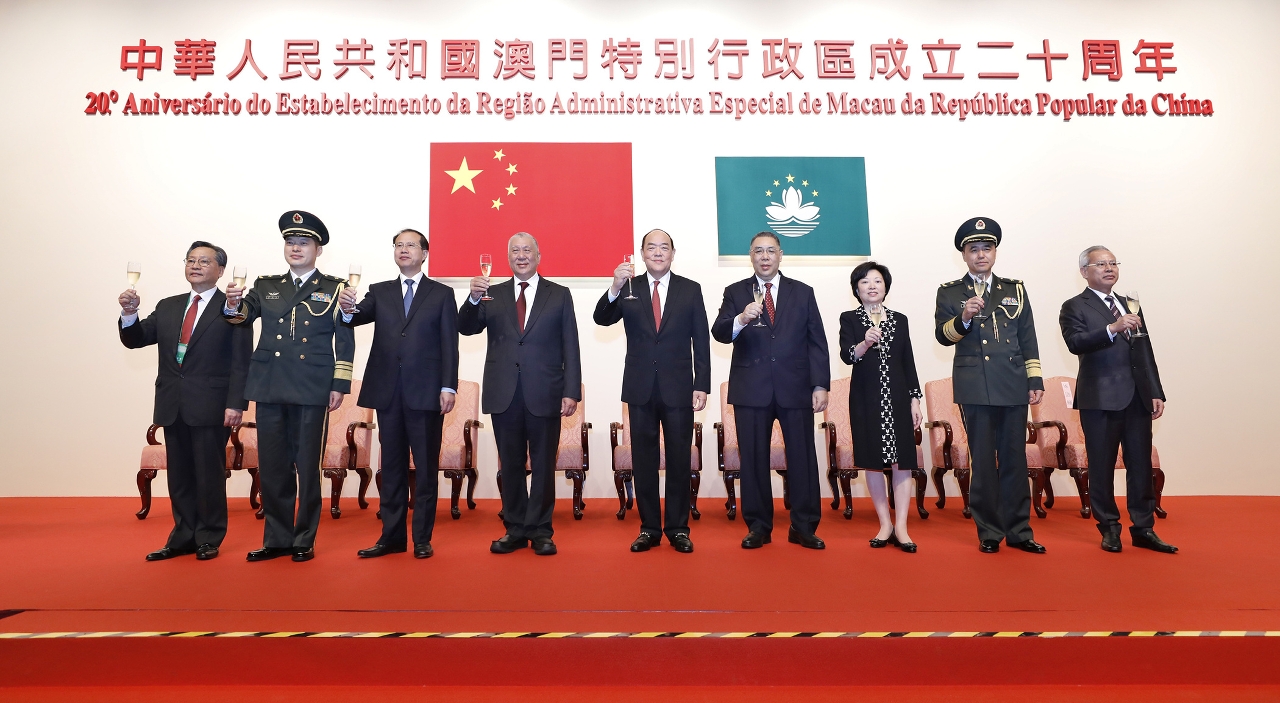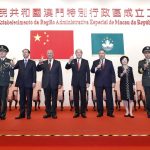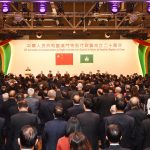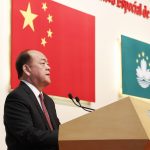 he Government hosts a reception to celebrate the 20th anniversary of the establishment of the Macao Special Administrative Region.
he Government hosts a reception to celebrate the 20th anniversary of the establishment of the Macao Special Administrative Region.
The Chief Executive, Mr Ho Iat Seng, today said the new Government team would dedicate utmost effort to implement and advance the “One country, two systems” principle with Macao characteristics, in strict conformity with President Xi Jinping’s instructions and requirements.
The newly-inaugurated Chief Executive delivers a speech at the reception to celebrate the 20th anniversary of the establishment of the Macao Special Administrative Region (SAR).
President Xi made in-depth remarks – during his three-day visit to Macao – about the implementation of the “One country, two systems” principle in Macao, noting that the principle had been enriched with unique characteristics in Macao thanks to existing, precious experience. His remarks would serve as the blueprint for the future development of Macao, Mr Ho said.
The Chief Executive stressed that “Unity and Effort, Change and Innovation” was the phrase summing up the new Government’s vision and orientation.
Looking ahead, Mr Ho said his objective was to build service-oriented governance by strengthening the management of civil servants; ensuring accountability among officials; building a just administration; enhancing administrative efficiency; responsibly utilising public funds; perfecting digital governance; enabling government-citizen interaction; implementing structural reforms; and streamlining governmental departments.
He also said that there was consensus within Macao society about the merit of adequately diversifying Macao’s economy and optimising the balance of its industries. The new Government would continue to implement the vision of the “Centre, Platform and Base” policies to cultivate development of Macao that would be coordinated with, and complementary to, that of the country.
The “Centre, Platform and Base” policies referred to Macao’s strategic positions as respectively: a world centre of tourism and leisure; a commercial and trade cooperationservice platform between China and Portuguese-speaking countries; and a multicultural exchange and cooperation base with an emphasis on Chinese culture.
The Government would accelerate effort to engage actively in the “Belt and Road” initiative, while deepening integration with the development of the Guangdong-Hong Kong-Macao Greater Bay Area, Mr Ho said.
The bedrock of Macao’s prospects and development was a stable and harmonious social environment, stated Mr Ho. The Government would listen sincerely and attentively to the voices of the local people and address their concerns.
Approximately 1,100 guests attended today’s reception at the Macau Tower. They included: Vice Chairman of the Chinese People’s Political Consultative Conference Mr Ho Hau Wah; the Third- and Fourth-Term Chief Executive, Mr Chui Sai On; the Director of the Liaison Office of the Central People’s Government in the Macao SAR, Mr Fu Ziying; the Commissioner of the Office of the Commissioner of the Ministry of Foreign Affairs of the People’s Republic of China in the Macao SAR, Ms Shen Beili; the Commander of the People’s Liberation Army Macao Garrison Senior Colonel Xu Liangcai; the Political Commissar of the People’s Liberation Army Macao Garrison, Mr Sun Wenju; the President of the Legislative Assembly, Mr Kou Hoi; In; the President of the Court of Final Appeal, Mr Sam Hou Fai; members of the Executive Council and of the Legislative Assembly; Government principal officials; Macao’s delegates to the National People’s Congress and to the Chinese People’s Political Consultative Conference; and people from different sectors of the community.




